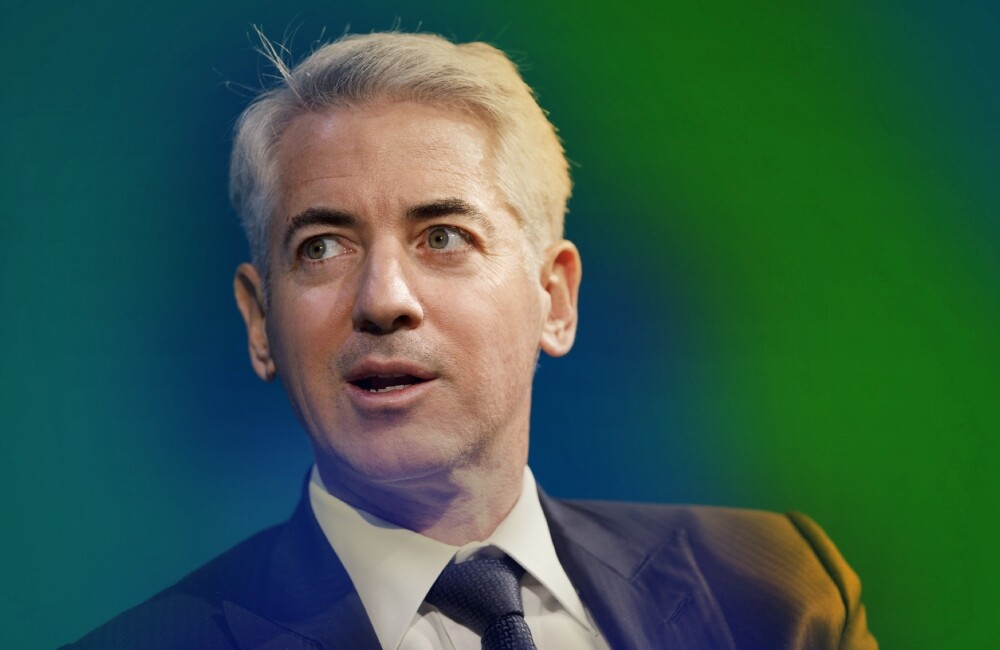Pershing Square Capital CEO Bill Ackman broke a three-year winning streak in 2022, posting his first down year since 2018. Pershing Square Holdings, his publicly traded hedge fund — and now the firm’s largest — fell 8.8 percent for the year, according to a notice to investors.
The market’s plunge in December ended hopes that Ackman could finish the year in the black: He was down only 4.8 percent at the end of November but lost an additional 4.2 percent during last month’s market meltdown. Still, he managed to far outdo the broader markets’ near-20 percent dive in 2022, despite owning a heavily-concentrated portfolio of stocks that mostly sank in tandem with the market.
Moreover, Pershing Square’s blockbuster gains in the prior three years — of 58.1 percent, 70.2 percent, and 26.9 percent in 2019, 2020, and 2021 respectively — have helped Pershing Square Holdings gain 25.1 percent on an annualized basis over the past five years. Since inception in January 2004, the fund is up 16 percent on an annualized basis.
As Ackman told investors on a quarterly call in November, some 4 percentage points of Pershing Square’s losses last year come from a permanent loss from the sale of its big Netflix stake. Other sizeable holdings that were down around 20 percent or more included Chipotle Mexican Grill, Lowe’s Companies, Hilton Worldwide Holdings, and Howard Hughes Corp.
On the plus side, Restaurant Brands International, which Ackman first took public via a special purpose acquisition company in 2012, rose 11 percent. Canadian Pacific Railways, where he previously led a successful activist battle, gained 5 percent. And the share price of Universal Music Group, which Ackman had planned as an investment for his 2020 SPAC but ended up putting in his hedge fund instead, fell less than 1 percent. (Universal’s hefty dividends put the investment in the black for the year.)
All year, Ackman’s losses have been tempered by a bet that interest rates would rise, given the need for the Federal Reserve to tackle inflation — a hedge to Pershing Square’s long-only stock portfolio. Ackman first put the bet on in the fall of 2021, and then jawboned the Fed to aggressively raise rates in the face of inflation that was starting to take off.
The bet had earned Pershing Square almost $2 billion by mid-November, the hedge fund manager told his investors in the third quarter call.
But now that the Fed has raised rates by four consecutive 75 basis point hikes — and another 50 basis points in December as inflation appeared to cool slightly — Ackman has taken a more measured approach.
Following the Fed’s reiteration of its 2 percent inflation target, Ackman took to Twitter on December 14 to admonish the central bank, saying its “2 percent inflation target is no longer credible. De-globalization, the transition to alternative energy, the need to pay workers more, lower-risk, shorter supply chains are all inflationary. The Fed cannot change its target now, but will likely do so in the future,” he said.
“Businesses need price stability, but can thrive in a world with 3 percent stable inflation,” he said.
Ackman added that he didn’t think the Fed could get inflation back to 2 percent “without a deep, job-destroying recession.” He said that accepting inflation around 3 percent “is a better strategy for a strong economy and job growth over the long term.”
Ackman began making his bet on rising rates in late 2021. Pershing Square paid $180 million for interest rate swaptions — options to enter into interest rate swaps — and sold them earlier last year when were worth $1.45 billion. Ackman has explained that he replaced those with swaptions with an extended maturity when the strike price was out of the money. He later sold that second hedge for $1.3 billion.
Pershing Square then spent $240 million on a third bet on rising rates. In mid-November, Ackman said that one was worth $446 million.







